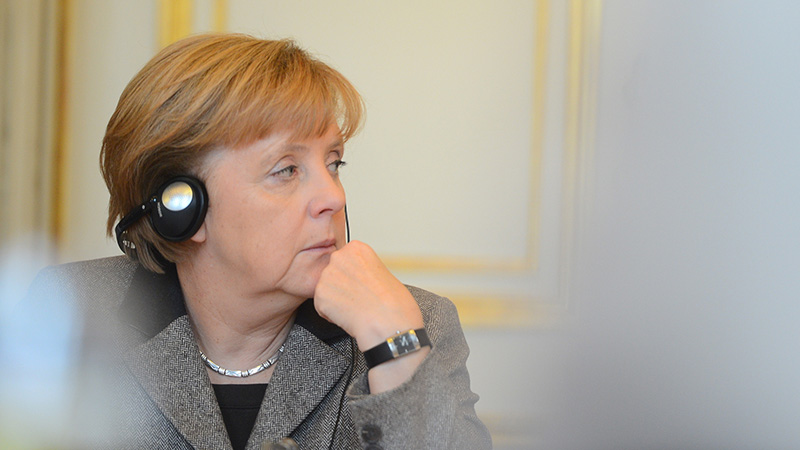Germany’s reputation as a green leader is slipping, after reports this week the putative government will give up on meeting its 2020 emissions target.
Experts described a draft coalition agreement that defers the goal as “disheartening”, “problematic” and “very weak”.
The underperformance of a generally constructive player casts a shadow over international efforts to tackle climate change, already weakened by president Donald Trump’s decision to withdraw the US from the Paris Agreement.
Maldives environment minister Thoriq Ibrahim, who chairs the alliance of small island states at UN climate talks, said: “It is disheartening to see developed parties lowering their ambition, particularly ones that had previously shown such strong leadership.
“Short term emissions cuts are absolutely essential if we are to avoid the worst impacts of climate change and the devastating extreme weather we saw last year is just a hint of what we can expect if countries continue to fall short of their commitments.”
Angela Merkel, previously dubbed the “climate chancellor” for her strong diplomatic record on the issue, is under fire for failing to heed warnings of a looming policy gap at home.
Compared to its neighbours, Germany remains a relatively strong performer on emissions cuts. Without further action, it is projected to achieve a 30-33% reduction by 2020, going beyond the EU-wide 20% target. But that falls far short of its self-imposed 40% target, which had given the country leverage on the world stage.
Coalition negotiators for Merkel’s conservatives and the centre-left Social Democratic Party agreed to “close the gap as far as possible” but conceded it will “no longer be achieved” in 2020.
“Merkel will certainly come under pressure for that – she is connected to this 2020 target,” said Brigitte Knopf, head of the Berlin-based Mercator Research Institute. “In Germany, it will hurt her reputation on climate change.”
The would-be government is promising to make up ground next decade, introducing a law to lock in its 2030 target of a 55% emissions cut. Negotiators have outlined some objectives, including setting an end date for phasing out coal, creating a transition fund for mining communities and increasing the renewable electricity share to 65%.
But it is “very weak in terms of a plan”, said Knopf, and risked repeating old mistakes: “The principle problem is in Germany, the focus is very much on renewables, but not emissions reductions. They have no idea how they want to phase out coal.”
Some commentators contrasted the lapse with French president Emmanuel Macron’s trip to China, where he charmed the public by learning to say “make our planet great again” in Mandarin.
“It will not bode well internationally if Germany fails to deliver the 40% target. It will be even more problematic if German politicians throw in the towel already now,” said Li Shuo, climate specialist with Greenpeace China.
Referring to Macron’s China visit, he added: “It looks increasingly likely that Europe’s climate spokesperson will soon not be Merkel. Will Berlin carry any credibility touting climate action around the globe? What is at play here matters much more than merely German domestic politics.”
While Germany may be lagging its bold ambition on carbon cuts, it still gets credit abroad for showing solidarity with the developing world. It is a major climate finance donor and provided practical support for Fiji – a small island state vulnerable to the impacts of climate change – to preside over the 2017 round of UN negotiations in Bonn.
Report: China flexes its muscle as climate talks end with slow progress
At that summit, pre-2020 action was among the most contentious issues, with developing countries putting pressure on the industrialised world to lead.
By all calculations, the sum of pledged national emissions cuts is not yet enough to meet the goal of holding global warming below 2C. The Paris Agreement created a framework for ramping up ambition over time.
“The less you do now, the more you have to do later,” said Ayman Cherkaoui, who as a special advisor to the Moroccan government at the time, helped to broker a compromise on the issue. “[Developing countries] pay all the more attention to what is done by 2020, because they know that whatever is not done now, they will have to adapt to [the consequences].”
Cherkaoui, now climate change lead at the Centre for International Sustainable Development Law, said there was “a sense of goodwill” towards Germany. “At the same time you are going to see some frustration,” he added. “The signal that they send by this kind of announcement is not helpful to trust and the ability to deliver on this [Paris] agreement.”
